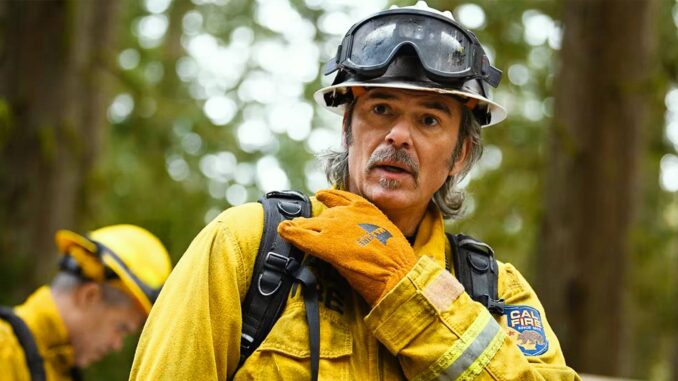
A Shocking Exit: The Fiery End of Vince and the Narrative Inferno of Fire Country
The roar of the chainsaw. The crackle of flames. The horrified gasp of Bode Leone. These are the images that linger after the shocking death of Vince Leone, played by Billy Burke, in the Season 2 premiere of “Fire Country.” The abrupt and brutal exit of a central figure, a cornerstone of the show’s familial and professional drama, left viewers reeling and sparked a flurry of speculation. Why kill off Vince in such a seemingly arbitrary way? Examining the narrative possibilities, the actor’s potential motivations, and the overall impact on the show reveals a complex web of reasons behind this fiery farewell.
One prevalent theory centers on the narrative shock value and its potential to inject new life into the series. “Fire Country,” while enjoying considerable popularity, faced the inherent challenge of maintaining its dramatic tension. Rescue scenarios, personal conflicts, and romantic entanglements, however compelling, can eventually become predictable. Removing a foundational character like Vince shatters the established dynamic, forcing the remaining characters to confront grief, guilt, and a drastically altered landscape. Bode, in particular, is thrust into a profound crucible of emotional turmoil, likely shaping his character arc for the remainder of the season and beyond. His relationship with his mother, Sharon, already fraught with complexities, is now further complicated by the shared trauma of losing Vince. The writers, therefore, might have opted for this drastic measure to reignite the narrative spark and create compelling storylines fueled by loss and its aftermath.
Furthermore, the specific manner of Vince’s death – a sudden, unforeseen accident – adds another layer of narrative intrigue. It wasn’t a heroic sacrifice battling a raging wildfire, a noble death in the line of duty. Instead, it was an everyday task, a routine act of clearing debris that turned tragically fatal. This reinforces the unpredictable nature of life, particularly in a profession as dangerous as firefighting. It underscores the inherent vulnerability of even the most seasoned professionals, reminding viewers that death can strike at any moment, without warning or ceremony. This rawness and realism can be a powerful tool in drawing viewers deeper into the show’s emotional core.
However, beyond the purely narrative justifications, Billy Burke’s potential motivations for leaving the show must be considered. While concrete details remain scarce, actors often depart from long-running series for a variety of reasons: creative differences, a desire to pursue other projects, or even simply a need for personal rejuvenation. While Burke hasn’t publicly cited any specific reason, it’s plausible that he felt Vince’s character arc had reached its natural conclusion, or that he was drawn to explore different roles and challenges. The demands of a network television schedule can be rigorous, and actors sometimes seek to reclaim more personal time and flexibility. Without explicit confirmation from Burke himself, this remains speculative, but it’s a factor that cannot be entirely dismissed.
Finally, the impact of Vince’s death on the overall direction and tone of “Fire Country” cannot be understated. It’s a gamble, undoubtedly. Killing off a beloved character can alienate viewers, especially if they feel the decision was made arbitrarily or without proper consideration. However, it also presents an opportunity to explore themes of resilience, community, and the enduring power of family in the face of unimaginable loss. The show now has the chance to delve deeper into the emotional lives of its characters, to examine how they navigate grief and find new meaning in their work. The focus might shift from the father-son dynamic of Vince and Bode to the complicated relationship between Sharon and Bode, or perhaps to the rise of a new leadership figure within the firehouse.
In conclusion, the shocking death of Vince Leone in “Fire Country” is a complex decision rooted in a confluence of factors. The narrative necessity for heightened drama, the potential for character development spurred by grief, the actor’s possible desire for new opportunities, and the overall impact on the show’s direction all contribute to understanding this fiery farewell. Whether this gamble ultimately pays off remains to be seen. However, one thing is certain: the absence of Vince Leone will undoubtedly reshape the landscape of “Fire Country,” leaving a void that will be felt for seasons to come. The ashes of this shocking exit are sure to fuel a narrative inferno, for better or for worse, as the remaining characters navigate the treacherous terrain of loss and strive to rebuild their lives in the wake of tragedy.

